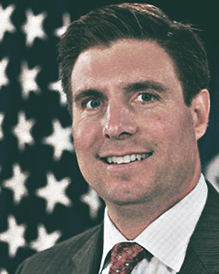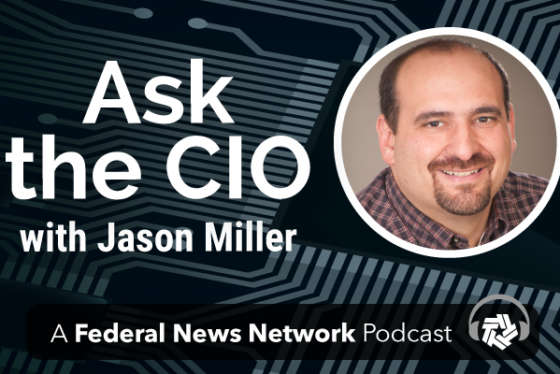
HHS OIG adding some IT Drano to its sluggish network
Chris Chilbert, the chief information officer of the Department of Health and Human Services Office of Inspector General, said among his top priorities is...
Much like a clogged drain, the Department of Health and Human Services’ Office of Inspector General’s computer network is in need of some Drano.
The current network is sluggish and slowing down how auditors and inspectors meet their missions.
Chris Chilbert, the chief information officer of HHS’ Office of Inspector General, said the network hasn’t been upgraded in many years, leaving field offices with slow connections and limited redundancy.

“We are spending a significant amount of our effort to build a redundant network that has the bandwidth we need given the amount of data that we use,” he said. “There are two pieces to it. We are upgrading the bandwidth to each of our field offices based on the number of people we have there and the traffic. We have all of our traffic, our network, routed through a building in downtown Washington, D.C. We want to move out of that situation and have redundant network hubs. So we will be on the East Coast and West Coast and have our traffic in a situation where we don’t have a single point of failure.”
Chilbert said the current network is too unreliable to support the OIG’s mission.
“If you have people on the West Coast sending all their traffic through the East Coast, that’s not a situation we want to be in. That also contributes to our overall performance,” he said. “We recognize this isn’t a good situation to be in and that we needed to make a change.”
Chilbert’s focus on network bandwidth and redundancy is a key piece to a bigger plan to improve the OIG’s overall technology infrastructure and tools.
Related to having more bandwidth and a better overall network is the OIG’s desire to adopt more modern mobile technology and move systems and applications to the cloud.
Chilbert said mobility and cloud are among his other top priorities over the next year — along with, of course, cybersecurity and big data.
“We’ve got a lot of agents in the field who are using more antiquated types of devices. We are moving to smartphones. That project is well underway. It’s a huge officer safety issue and one we are primarily focused on,” he said. “We are moving from BlackBerrys to iPhones. That will give us a lot more capability in terms of the types of work they will try to do, the types of apps that are available to them right out of the box.”
Chilbert said he’s part of a small pilot of about 10-15 employees testing iPhones, but over the next few months he expects to expand the number of smartphones in the field.
The OIG looked at tablets but decided to focus on smartphones for several reasons.
“We found that actually even though tablets are a lighter form factor, they don’t work that well for the types of jobs our agents do. They don’t need to sit out there in a car or somewhere with a device as big as a tablet,” Chilbert said. “We are actually moving away from tablets from the agents and mostly giving them laptops, that is what they requested.”
The use of smartphones to access apps and data, and the upgrade of the network also are buoyed by the desire to move to the cloud.
Chilbert said the OIG already is using the cloud for basic services such as email and Microsoft Office 365.
“We have several applications that we manage across the organization, we have more than 40. Those are currently hosted within a data center that we currently maintain and one that is another federal data center,” he said. “We will be moving all of our applications to a co-location data center that has connections to any number of cloud providers. We will be putting them on virtual servers so what that means is basically we are creating a private cloud. We will be 100 percent on our private cloud with the ability to start migrating into commercial cloud as we develop new applications.”
On the mission side, auditors use the commercial cloud to prepare for cybersecurity auditing of HHS bureaus and offices.
“We want to build new applications. Some of our apps are fairly old and we want to take advantage of some of the capabilities that cloud provides,” Chilbert said. “We are going to be saving an enormous amount of money by just going to this private cloud. We will be more secure and more resilient.”
Copyright © 2025 Federal News Network. All rights reserved. This website is not intended for users located within the European Economic Area.
Jason Miller is executive editor of Federal News Network and directs news coverage on the people, policy and programs of the federal government.
Follow @jmillerWFED




